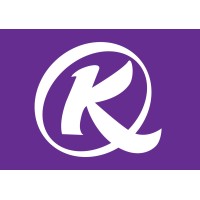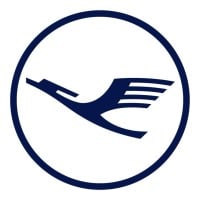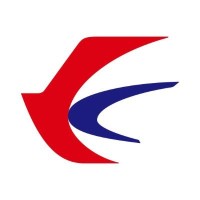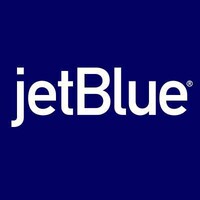
Kenya Airways Company Cyber Security Posture
kenya-airways.comKenya Airways, a member of the SkyTeam Alliance, is a leading African airline flying to 41 destinations worldwide, 34 of which are in Africa, and carries over four million passengers annually. In 2020 KQ was named Africa’s Leading Airline by the World Travel Awards. It continues to modernize its fleet with its 32 aircraft being some of the youngest in Africa. This includes its flagship B787 Dreamliner aircraft. Kenya Airways offers services Cargo services to key locations including London, Amsterdam, Guangzhou, Sharjah, and Mumbai, and over 25 intra-Africa routes in addition to its passenger network. The on-board service is renowned and the lie-flat business class seat on the wide-body aircraft is consistently voted among the world’s top 10. Kenya Airways takes pride in being at the forefront of connecting Africa to the World and the World to Africa through its hub at the new ultra-modern Terminal 1A at the Jomo Kenyatta International Airport in Nairobi. For more information visit www.kenya-airways.com; follow us on Twitter, Facebook, LinkedIn, and Instagram.
Kenya Airways Company Details
kenya-airways
7043 employees
366726.0
481
Airlines and Aviation
kenya-airways.com
Scan still pending
KEN_1330949
In-progress
Between 900 and 1000
This score is AI-generated and less favored by cyber insurers, who prefer the TPRM score.
 Kenya Airways Global Score
Kenya Airways Global Score.png)

Kenya Airways Company Scoring based on AI Models
| Model Name | Date | Description | Current Score Difference | Score |
|---|---|---|---|---|
| AVERAGE-Industry | 03-12-2025 | This score represents the average cybersecurity rating of companies already scanned within the same industry. It provides a benchmark to compare an individual company's security posture against its industry peers. | N/A | Between 900 and 1000 |
Kenya Airways Company Cyber Security News & History
| Entity | Type | Severity | Impact | Seen | Url ID | Details | View |
|---|---|---|---|---|---|---|---|
| Kenya Airways | Ransomware | 100 | 5 | 01/2024 | KEN223921124 | Link | |
Rankiteo Explanation : Attack threatening the organization’s existenceDescription: Kenya Airways Ltd. experienced a significant ransomware attack resulting in the internet leakage of private company data. Some data samples taken during the attack were recently released by the hacker collective Ransomexx. In addition to death certificates, accident reports, passport applications, and airline plans, the leaked data also contains information about the airline's previous passengers and its investigative operations. Online leaks have purportedly revealed confidential data that was dubiously taken from Kenya Airlines' (KQ) digital systems. | |||||||
Kenya Airways Company Subsidiaries

Kenya Airways, a member of the SkyTeam Alliance, is a leading African airline flying to 41 destinations worldwide, 34 of which are in Africa, and carries over four million passengers annually. In 2020 KQ was named Africa’s Leading Airline by the World Travel Awards. It continues to modernize its fleet with its 32 aircraft being some of the youngest in Africa. This includes its flagship B787 Dreamliner aircraft. Kenya Airways offers services Cargo services to key locations including London, Amsterdam, Guangzhou, Sharjah, and Mumbai, and over 25 intra-Africa routes in addition to its passenger network. The on-board service is renowned and the lie-flat business class seat on the wide-body aircraft is consistently voted among the world’s top 10. Kenya Airways takes pride in being at the forefront of connecting Africa to the World and the World to Africa through its hub at the new ultra-modern Terminal 1A at the Jomo Kenyatta International Airport in Nairobi. For more information visit www.kenya-airways.com; follow us on Twitter, Facebook, LinkedIn, and Instagram.
Access Data Using Our API

Get company history
.png)
Kenya Airways Cyber Security News
Kenya Cyberattack Exposes Ruto and Kenyatta's Business Dealings
A cyberattack in Kenya exposed the private business dealings of President William Ruto and former President Uhuru Kenyatta.
Safaricom and partners promise affordable cybersecurity for Kenya’s MSMEs
Kenyan service provider Safaricom has announced a strategic partnership with Cloudflare, a global web infrastructure and cybersecurity ...
CrowdStrike IT outage causes chaos, disrupting airlines, banks, media
A massive technology outage has disrupted businesses and institutions in multiple countries, throwing airports, airlines, rail companies, ...
Kenya Airways and Safaricom forge tech partnership for aviation innovation
Kenya Airways (KQ) and Safaricom have joined forces to revolutionise the aviation sector through technological innovation.
Kenya Airways and Safaricom Partner to Revolutionize Connectivity
The collaboration between Kenya Airways and Safaricom will focus on improving connectivity, in-flight Wi-Fi, infrastructure inspection, security ...
AI, Data Privacy, Cybersecurity To Drive IT Sector In 2025
The IT sector in Kenya is expected to continue its rapid growth trajectory in 2025 with developments in artificial intelligence (AI), data ...
Kenya Airways and Safaricom Partner to Boost Operational Efficiency and Innovation
Kenya Airways teams with Safaricom to enhance connectivity, cybersecurity, and customer experience through innovative solutions.
Safaricom and Kenya Airways Forge Alliance to Boost Airline Operations and Customer Experience
This partnership is part of Safaricom's broader strategy of forming strategic alliances to expand its reach and enhance its service offerings.
Why cyberattacks have become Kenya’s big headache
Cyberattacks can target individuals, businesses, governments, and even critical infrastructure like banks and power grids.

Kenya Airways Similar Companies

Air Canada
Canada's largest airline, the country’s flag carrier and a founding member of Star Alliance, the world's most comprehensive air transportation network celebrating its 25thanniversary in 2022, Air Canada provides scheduled passenger service directly to 51 airports in Canada, 51 in the United States a

Lufthansa
Lufthansa is one of the world's largest and most prestigious airlines. With hubs in Frankfurt and Munich, we currently fly to 211 destinations in 74 countries. As an industry innovator, we have long been committed to environmental care and sustainability, operating one of the most technologically-

China Eastern Airlines, North America
As one of the three major air carriers in China, headquartered in Shanghai, China Eastern Airlines operates 111 domestic and overseas branches across the globe. Flying a fleet of 730 aircraft which is one of the youngest fleets in major airlines worldwide. Moreover, it boasts the largest-scale in-fl

Ethiopian Airlines
Ethiopian Airlines Group (Ethiopian) is the fastest growing Airline Group in Africa. In its seventy plus years of operation, Ethiopian has become one of the continent’s leading carriers, unrivaled in efficiency and operational success. Ethiopian commands the lion’s share of the Pan-African passe

gategroup
gategroup is the global leader in airline catering, retail-on-board and hospitality products and services. gategroup provides passengers with superior culinary and retail experiences, leveraging innovation and advanced technology solutions. Headquartered in Zurich, Switzerland, gategroup delivers op

JetBlue
When JetBlue first took flight in February 2000, our founding goal was to bring humanity back to air travel, and over two decades later, we still put our customers, crewmembers and communities at the center of everything we do. Before we even had aircraft to fly, our founders selected five values

Frequently Asked Questions (FAQ) on Cybersecurity Incidents
Kenya Airways CyberSecurity History Information
Total Incidents: According to Rankiteo, Kenya Airways has faced 1 incidents in the past.
Incident Types: The types of cybersecurity incidents that have occurred include ['Ransomware'].
Total Financial Loss: The total financial loss from these incidents is estimated to be {total_financial_loss}.
Cybersecurity Posture: The company's overall cybersecurity posture is described as Kenya Airways, a member of the SkyTeam Alliance, is a leading African airline flying to 41 destinations worldwide, 34 of which are in Africa, and carries over four million passengers annually. In 2020 KQ was named Africa’s Leading Airline by the World Travel Awards. It continues to modernize its fleet with its 32 aircraft being some of the youngest in Africa. This includes its flagship B787 Dreamliner aircraft. Kenya Airways offers services Cargo services to key locations including London, Amsterdam, Guangzhou, Sharjah, and Mumbai, and over 25 intra-Africa routes in addition to its passenger network. The on-board service is renowned and the lie-flat business class seat on the wide-body aircraft is consistently voted among the world’s top 10. Kenya Airways takes pride in being at the forefront of connecting Africa to the World and the World to Africa through its hub at the new ultra-modern Terminal 1A at the Jomo Kenyatta International Airport in Nairobi. For more information visit www.kenya-airways.com; follow us on Twitter, Facebook, LinkedIn, and Instagram..
Detection and Response: The company detects and responds to cybersecurity incidents through {description_of_detection_and_response_process}.
Incident Details
Incident 1: Ransomware Attack
Title: {Incident_Title}
Description: {Brief_description_of_the_incident}
Date Detected: {Detection_Date}
Date Publicly Disclosed: {Disclosure_Date}
Date Resolved: {Resolution_Date}
Type: {Type_of_Attack}
Attack Vector: {Attack_Vector}
Vulnerability Exploited: {Vulnerability}
Threat Actor: {Threat_Actor}
Motivation: {Motivation}
Incident 2: Data Breach
Title: {Incident_Title}
Description: {Brief_description_of_the_incident}
Date Detected: {Detection_Date}
Date Publicly Disclosed: {Disclosure_Date}
Date Resolved: {Resolution_Date}
Type: {Type_of_Attack}
Attack Vector: {Attack_Vector}
Vulnerability Exploited: {Vulnerability}
Threat Actor: {Threat_Actor}
Motivation: {Motivation}
Common Attack Types: As of now, the company has not encountered any reported incidents involving common cyberattacks.
Identification of Attack Vectors: The company identifies the attack vectors used in incidents through {description_of_identification_process}.
Impact of the Incidents
Incident 1: Ransomware Attack
Financial Loss: {Financial_Loss}
Data Compromised: {Data_Compromised}
Systems Affected: {Systems_Affected}
Downtime: {Downtime}
Operational Impact: {Operational_Impact}
Conversion Rate Impact: {Conversion_Rate_Impact}
Revenue Loss: {Revenue_Loss}
Customer Complaints: {Customer_Complaints}
Brand Reputation Impact: {Brand_Reputation_Impact}
Legal Liabilities: {Legal_Liabilities}
Identity Theft Risk: {Identity_Theft_Risk}
Payment Information Risk: {Payment_Information_Risk}
Incident 2: Data Breach
Financial Loss: {Financial_Loss}
Data Compromised: {Data_Compromised}
Systems Affected: {Systems_Affected}
Downtime: {Downtime}
Operational Impact: {Operational_Impact}
Conversion Rate Impact: {Conversion_Rate_Impact}
Revenue Loss: {Revenue_Loss}
Customer Complaints: {Customer_Complaints}
Brand Reputation Impact: {Brand_Reputation_Impact}
Legal Liabilities: {Legal_Liabilities}
Identity Theft Risk: {Identity_Theft_Risk}
Payment Information Risk: {Payment_Information_Risk}
Average Financial Loss: The average financial loss per incident is {average_financial_loss}.
Commonly Compromised Data Types: The types of data most commonly compromised in incidents are {list_of_commonly_compromised_data_types}.
Incident 1: Ransomware Attack
Entity Name: {Entity_Name}
Entity Type: {Entity_Type}
Industry: {Industry}
Location: {Location}
Size: {Size}
Customers Affected: {Customers_Affected}
Incident 2: Data Breach
Entity Name: {Entity_Name}
Entity Type: {Entity_Type}
Industry: {Industry}
Location: {Location}
Size: {Size}
Customers Affected: {Customers_Affected}
Response to the Incidents
Incident 1: Ransomware Attack
Incident Response Plan Activated: {Yes/No}
Third Party Assistance: {Yes/No}
Law Enforcement Notified: {Yes/No}
Containment Measures: {Containment_Measures}
Remediation Measures: {Remediation_Measures}
Recovery Measures: {Recovery_Measures}
Communication Strategy: {Communication_Strategy}
Adaptive Behavioral WAF: {Adaptive_Behavioral_WAF}
On-Demand Scrubbing Services: {On_Demand_Scrubbing_Services}
Network Segmentation: {Network_Segmentation}
Enhanced Monitoring: {Enhanced_Monitoring}
Incident 2: Data Breach
Incident Response Plan Activated: {Yes/No}
Third Party Assistance: {Yes/No}
Law Enforcement Notified: {Yes/No}
Containment Measures: {Containment_Measures}
Remediation Measures: {Remediation_Measures}
Recovery Measures: {Recovery_Measures}
Communication Strategy: {Communication_Strategy}
Adaptive Behavioral WAF: {Adaptive_Behavioral_WAF}
On-Demand Scrubbing Services: {On_Demand_Scrubbing_Services}
Network Segmentation: {Network_Segmentation}
Enhanced Monitoring: {Enhanced_Monitoring}
Incident Response Plan: The company's incident response plan is described as {description_of_incident_response_plan}.
Third-Party Assistance: The company involves third-party assistance in incident response through {description_of_third_party_involvement}.
Data Breach Information
Incident 2: Data Breach
Type of Data Compromised: {Type_of_Data}
Number of Records Exposed: {Number_of_Records}
Sensitivity of Data: {Sensitivity_of_Data}
Data Exfiltration: {Yes/No}
Data Encryption: {Yes/No}
File Types Exposed: {File_Types}
Personally Identifiable Information: {Yes/No}
Prevention of Data Exfiltration: The company takes the following measures to prevent data exfiltration: {description_of_prevention_measures}.
Handling of PII Incidents: The company handles incidents involving personally identifiable information (PII) through {description_of_handling_process}.
Ransomware Information
Incident 1: Ransomware Attack
Ransom Demanded: {Ransom_Amount}
Ransom Paid: {Ransom_Paid}
Ransomware Strain: {Ransomware_Strain}
Data Encryption: {Yes/No}
Data Exfiltration: {Yes/No}
Ransom Payment Policy: The company's policy on paying ransoms in ransomware incidents is described as {description_of_ransom_payment_policy}.
Data Recovery from Ransomware: The company recovers data encrypted by ransomware through {description_of_data_recovery_process}.
Regulatory Compliance
Incident 1: Ransomware Attack
Regulations Violated: {Regulations_Violated}
Fines Imposed: {Fines_Imposed}
Legal Actions: {Legal_Actions}
Regulatory Notifications: {Regulatory_Notifications}
Incident 2: Data Breach
Regulations Violated: {Regulations_Violated}
Fines Imposed: {Fines_Imposed}
Legal Actions: {Legal_Actions}
Regulatory Notifications: {Regulatory_Notifications}
Regulatory Frameworks: The company complies with the following regulatory frameworks regarding cybersecurity: {list_of_regulatory_frameworks}.
Ensuring Regulatory Compliance: The company ensures compliance with regulatory requirements through {description_of_compliance_measures}.
Lessons Learned and Recommendations
Incident 1: Ransomware Attack
Lessons Learned: {Lessons_Learned}
Incident 2: Data Breach
Lessons Learned: {Lessons_Learned}
Incident 1: Ransomware Attack
Recommendations: {Recommendations}
Incident 2: Data Breach
Recommendations: {Recommendations}
Key Lessons Learned: The key lessons learned from past incidents are {list_of_key_lessons_learned}.
Implemented Recommendations: The company has implemented the following recommendations to improve cybersecurity: {list_of_implemented_recommendations}.
References
Additional Resources: Stakeholders can find additional resources on cybersecurity best practices at {list_of_additional_resources}.
Investigation Status
Incident 1: Ransomware Attack
Investigation Status: {Investigation_Status}
Incident 2: Data Breach
Investigation Status: {Investigation_Status}
Communication of Investigation Status: The company communicates the status of incident investigations to stakeholders through {description_of_communication_process}.
Stakeholder and Customer Advisories
Incident 1: Ransomware Attack
Stakeholder Advisories: {Stakeholder_Advisories}
Customer Advisories: {Customer_Advisories}
Incident 2: Data Breach
Stakeholder Advisories: {Stakeholder_Advisories}
Customer Advisories: {Customer_Advisories}
Advisories Provided: The company provides the following advisories to stakeholders and customers following an incident: {description_of_advisories_provided}.
Initial Access Broker
Incident 1: Ransomware Attack
Entry Point: {Entry_Point}
Reconnaissance Period: {Reconnaissance_Period}
Backdoors Established: {Backdoors_Established}
High Value Targets: {High_Value_Targets}
Data Sold on Dark Web: {Yes/No}
Incident 2: Data Breach
Entry Point: {Entry_Point}
Reconnaissance Period: {Reconnaissance_Period}
Backdoors Established: {Backdoors_Established}
High Value Targets: {High_Value_Targets}
Data Sold on Dark Web: {Yes/No}
Monitoring and Mitigation of Initial Access Brokers: The company monitors and mitigates the activities of initial access brokers through {description_of_monitoring_and_mitigation_measures}.
Post-Incident Analysis
Incident 1: Ransomware Attack
Root Causes: {Root_Causes}
Corrective Actions: {Corrective_Actions}
Incident 2: Data Breach
Root Causes: {Root_Causes}
Corrective Actions: {Corrective_Actions}
Post-Incident Analysis Process: The company's process for conducting post-incident analysis is described as {description_of_post_incident_analysis_process}.
Corrective Actions Taken: The company has taken the following corrective actions based on post-incident analysis: {list_of_corrective_actions_taken}.
Additional Questions
General Information
Ransom Payment History: The company has {paid/not_paid} ransoms in the past.
Last Ransom Demanded: The amount of the last ransom demanded was {last_ransom_amount}.
Last Attacking Group: The attacking group in the last incident was {last_attacking_group}.
Incident Details
Most Recent Incident Detected: The most recent incident detected was on {most_recent_incident_detected_date}.
Most Recent Incident Publicly Disclosed: The most recent incident publicly disclosed was on {most_recent_incident_publicly_disclosed_date}.
Most Recent Incident Resolved: The most recent incident resolved was on {most_recent_incident_resolved_date}.
Impact of the Incidents
Highest Financial Loss: The highest financial loss from an incident was {highest_financial_loss}.
Most Significant Data Compromised: The most significant data compromised in an incident was {most_significant_data_compromised}.
Most Significant System Affected: The most significant system affected in an incident was {most_significant_system_affected}.
Response to the Incidents
Third-Party Assistance in Most Recent Incident: The third-party assistance involved in the most recent incident was {third_party_assistance_in_most_recent_incident}.
Containment Measures in Most Recent Incident: The containment measures taken in the most recent incident were {containment_measures_in_most_recent_incident}.
Data Breach Information
Most Sensitive Data Compromised: The most sensitive data compromised in a breach was {most_sensitive_data_compromised}.
Number of Records Exposed: The number of records exposed in the most significant breach was {number_of_records_exposed}.
Ransomware Information
Highest Ransom Demanded: The highest ransom demanded in a ransomware incident was {highest_ransom_demanded}.
Highest Ransom Paid: The highest ransom paid in a ransomware incident was {highest_ransom_paid}.
Regulatory Compliance
Highest Fine Imposed: The highest fine imposed for a regulatory violation was {highest_fine_imposed}.
Most Significant Legal Action: The most significant legal action taken for a regulatory violation was {most_significant_legal_action}.
Lessons Learned and Recommendations
Most Significant Lesson Learned: The most significant lesson learned from past incidents was {most_significant_lesson_learned}.
Most Significant Recommendation Implemented: The most significant recommendation implemented to improve cybersecurity was {most_significant_recommendation_implemented}.
References
Most Recent Source: The most recent source of information about an incident is {most_recent_source}.
Most Recent URL for Additional Resources: The most recent URL for additional resources on cybersecurity best practices is {most_recent_url}.
Investigation Status
Current Status of Most Recent Investigation: The current status of the most recent investigation is {current_status_of_most_recent_investigation}.
Stakeholder and Customer Advisories
Most Recent Stakeholder Advisory: The most recent stakeholder advisory issued was {most_recent_stakeholder_advisory}.
Most Recent Customer Advisory: The most recent customer advisory issued was {most_recent_customer_advisory}.
Initial Access Broker
Most Recent Entry Point: The most recent entry point used by an initial access broker was {most_recent_entry_point}.
Most Recent Reconnaissance Period: The most recent reconnaissance period for an incident was {most_recent_reconnaissance_period}.
Post-Incident Analysis
Most Significant Root Cause: The most significant root cause identified in post-incident analysis was {most_significant_root_cause}.
Most Significant Corrective Action: The most significant corrective action taken based on post-incident analysis was {most_significant_corrective_action}.
What Do We Measure?
















Every week, Rankiteo analyzes billions of signals to give organizations a sharper, faster view of emerging risks. With deeper, more actionable intelligence at their fingertips, security teams can outpace threat actors, respond instantly to Zero-Day attacks, and dramatically shrink their risk exposure window.
These are some of the factors we use to calculate the overall score:
Identify exposed access points, detect misconfigured SSL certificates, and uncover vulnerabilities across the network infrastructure.
Gain visibility into the software components used within an organization to detect vulnerabilities, manage risk, and ensure supply chain security.
Monitor and manage all IT assets and their configurations to ensure accurate, real-time visibility across the company's technology environment.
Leverage real-time insights on active threats, malware campaigns, and emerging vulnerabilities to proactively defend against evolving cyberattacks.




